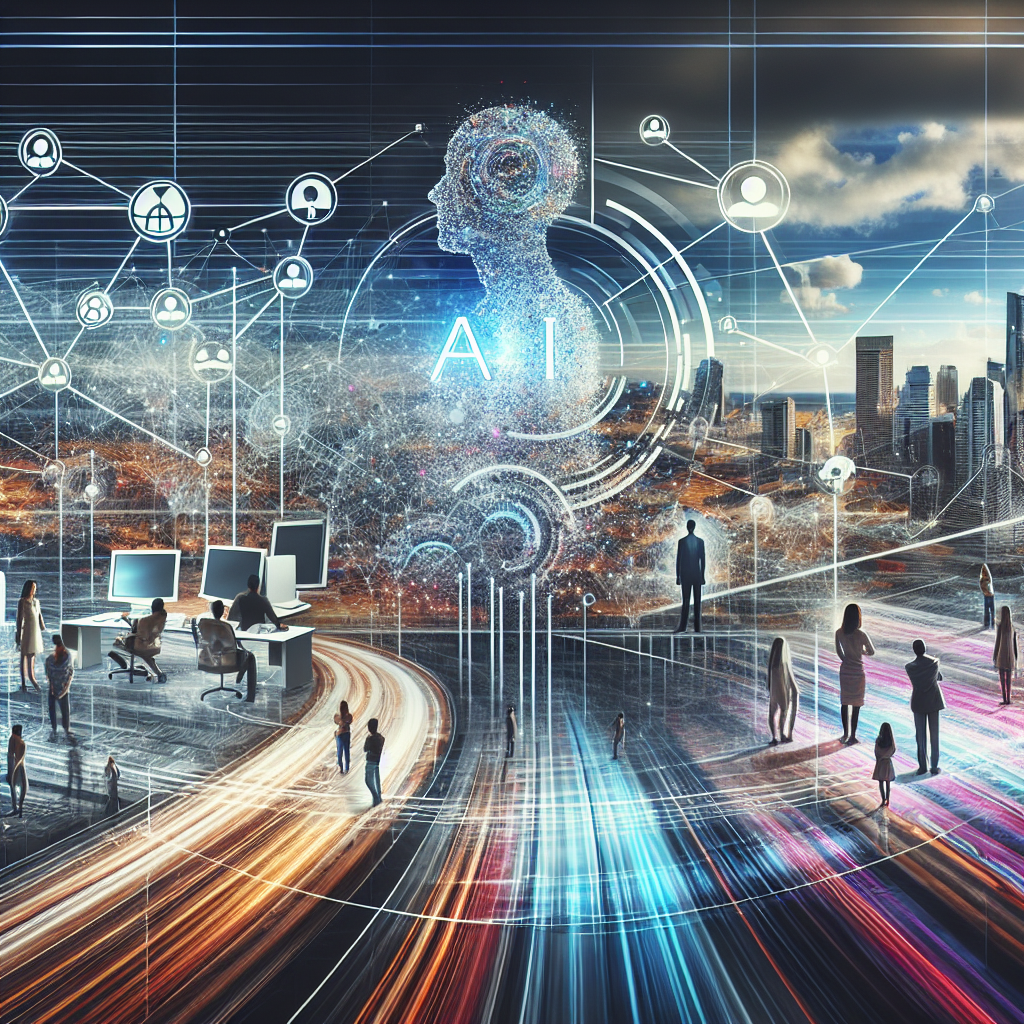The Democratization of AI: A Tool for Social Progress
Artificial intelligence (AI) has become an integral part of our daily lives, from virtual assistants like Siri and Alexa to recommendation algorithms on streaming platforms like Netflix. But as AI technology continues to advance, there is a growing concern about who has access to this powerful tool and how it is being used. The democratization of AI is a movement aimed at making AI more accessible to everyone, not just large corporations and tech giants. This democratization has the potential to drive social progress in various ways, from improving healthcare and education to addressing social inequality and climate change.
The democratization of AI is about more than just making the technology itself more accessible. It also involves ensuring that people from diverse backgrounds have the knowledge and skills to understand and use AI in a way that benefits society as a whole. This includes providing training and resources to underserved communities, promoting diversity in the AI workforce, and creating policies that prioritize the ethical and responsible use of AI.
One of the key ways in which the democratization of AI can drive social progress is through its potential to revolutionize healthcare. AI has the ability to analyze vast amounts of data and identify patterns that humans might miss, leading to more accurate diagnoses and personalized treatment plans. AI-powered tools like IBM Watson Health and Google DeepMind have already shown promise in areas such as cancer detection and drug discovery. By making these tools more widely available, we can improve healthcare outcomes for people around the world, particularly in underserved communities where access to quality healthcare is limited.
Education is another area where the democratization of AI can have a significant impact. AI-powered tools can help personalize learning experiences for students, adapt to their individual needs, and provide real-time feedback to teachers. This can help address the challenges of traditional education systems, such as overcrowded classrooms and limited resources. By making AI tools more accessible to educators and students, we can create a more equitable and inclusive education system that empowers all learners to reach their full potential.
Addressing social inequality is another key area where the democratization of AI can drive social progress. By providing access to AI tools and resources to marginalized communities, we can help bridge the digital divide and empower people to participate more fully in the digital economy. AI can also be used to identify and address systemic biases in areas such as hiring, lending, and criminal justice, leading to more fair and just outcomes for all members of society.
Climate change is another pressing issue where the democratization of AI can make a difference. AI-powered tools can help analyze data from sensors and satellites to monitor environmental changes, predict natural disasters, and optimize energy consumption. By making these tools more widely available, we can empower communities to take action to mitigate the effects of climate change and build more sustainable societies.
However, the democratization of AI also raises important ethical and social considerations. As AI becomes more pervasive in our daily lives, there is a growing concern about issues such as privacy, data security, and algorithmic bias. It is important to ensure that AI technologies are developed and used in a way that respects individual rights and values, promotes transparency and accountability, and minimizes harm to vulnerable populations.
FAQs
Q: What is the democratization of AI?
A: The democratization of AI is a movement aimed at making AI more accessible to everyone, not just large corporations and tech giants. This involves providing training and resources to underserved communities, promoting diversity in the AI workforce, and creating policies that prioritize the ethical and responsible use of AI.
Q: How can the democratization of AI drive social progress?
A: The democratization of AI can drive social progress by revolutionizing healthcare, improving education, addressing social inequality, and mitigating the effects of climate change. By providing access to AI tools and resources to marginalized communities, we can empower people to participate more fully in the digital economy and build more sustainable societies.
Q: What are some of the ethical considerations related to the democratization of AI?
A: Some of the ethical considerations related to the democratization of AI include issues such as privacy, data security, and algorithmic bias. It is important to ensure that AI technologies are developed and used in a way that respects individual rights and values, promotes transparency and accountability, and minimizes harm to vulnerable populations.

